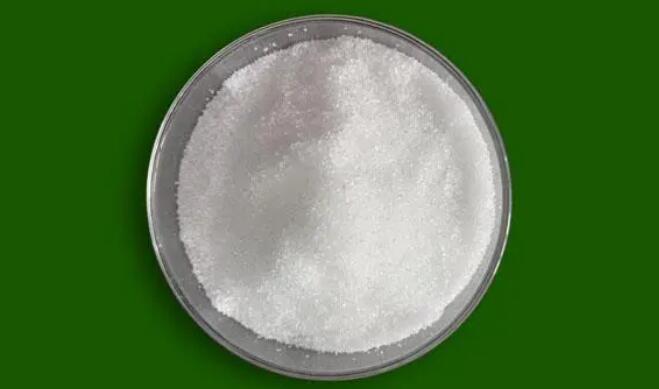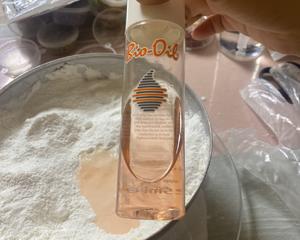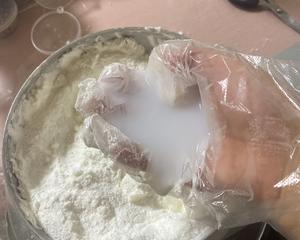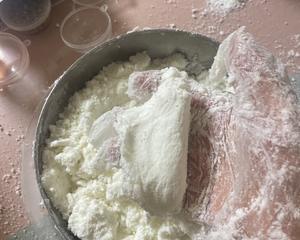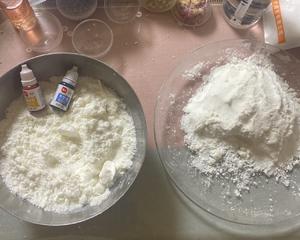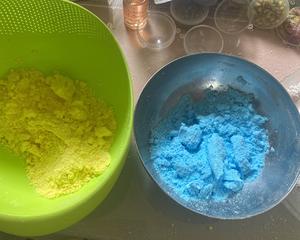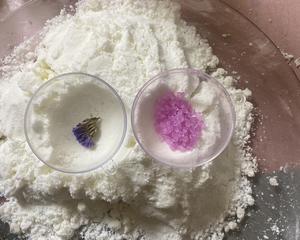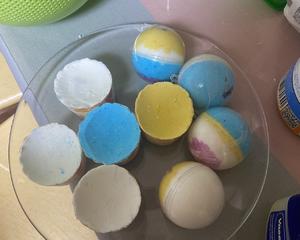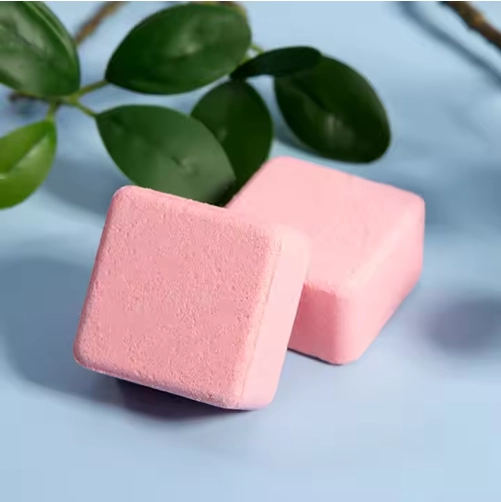Citric acid is the largest acid among organic acids, soluble in water, and serves as a natural preservative and food additive. Depending on its water content, it can be classified into monohydrate citric acid and anhydrous citric acid. Due to its physical, chemical, and derivative properties, citric acid is widely used as the most important organic acid in the food, pharmaceutical, and daily chemical industries. So, what specific functions and applications does citric acid have?
I. Functions of Citric Acid
Citric acid is mainly used as a souring agent, solubilizing agent, buffering agent, antioxidant, deodorizer, flavor enhancer, gelling agent, coloring agent, etc. Additionally, citric acid inhibits bacteria, protects color, improves flavor, promotes sucrose conversion, and chelates harmful metals. Citric acid also exhibits chelation properties, capable of eliminating certain harmful metals. It prevents oxidation caused by enzyme and metal catalysis, thereby preventing discoloration and flavor changes in frozen fruits.
II. Applications of Citric Acid
1. Used in the Food Industry
Due to its mild and refreshing taste, citric acid is primarily used in carbonated beverages, fruit juices, lactate beverages, and pickled products in the field of food additives. Its demand varies with seasonal changes in climate. Citric acid accounts for about two-thirds of the total consumption of souring agents. Adding citric acid to canned fruits helps maintain or improve the flavor, increases acidity during storage of fruits with low acidity (lowering pH), reduces the heat resistance of microorganisms, and prevents bacterial swelling and damage in low-acidity canned fruits. Adding citric acid as a souring agent facilitates coordination with fruit flavors in candies. In gel foods such as sauces and jellies, using citric acid effectively reduces the negative charge of pectin, allowing pectin molecules to form hydrogen bonds and gel. Some vegetables exhibit alkaline reactions when processing canned vegetables, and citric acid is used as a pH adjuster to enhance the taste and maintain their quality. The chelating and pH-regulating properties of citric acid enhance antioxidant performance, inhibit enzyme activity, and extend the shelf life of frozen foods.
Monohydrate Citric Acid, Anhydrous Citric Acid
Monohydrate citric acid is mainly used as an acidic flavoring agent in refreshing beverages, fruit juices, jams, sugars, and canned fruits. It can also be used as an antioxidant for edible oils. Additionally, it improves the sensory characteristics of food, enhances appetite, and promotes the digestion and absorption of calcium and phosphorus substances in the body.
Anhydrous citric acid is extensively used in solid beverages. Citric acid salts, such as calcium citrate and iron citrate, are used as fortifiers, requiring the addition of calcium and iron ions in certain foods. Citric acid esters, such as triethyl citrate, serve as non-toxic plasticizers, manufacturing plastic films for food packaging, and are used in the beverage and food industries as souring agents and preservatives.
2. Used in the Water Treatment Industry
Citric acid has bactericidal and pH-regulating effects in water treatment. Its acidity can alter the pH of cells, affecting bacteria's normal metabolism. High concentrations of acidic hydrogen ions can also change bacteria's biological activity and directly damage cells.
3. Used in Chemical Reagents and Detergents
In chemical technology, citric acid serves as a reagent for chemical analysis, experimental reagents, chromatographic analysis reagents, and biochemical reagents. It is used as a complexing and masking agent to prepare buffer solutions.
Using citric acid or its salts as a washing aid can improve the performance of detergent products, quickly precipitate metal ions, prevent pollutants from reattaching to fabrics, maintain the necessary alkalinity for washing, disperse and suspend dirt and ash, and enhance the performance of surfactants.
Citric acid can also be formulated into formaldehyde-free, wrinkle-resistant finishing agents for the wrinkle-resistant treatment of pure cotton fabrics.
4. Used in Cosmetics
Citric acid prevents and eliminates skin pigment deposition. As a type of fruit acid, citric acid mainly accelerates keratin renewal and is commonly used in lotions, creams, shampoos, whitening products, anti-aging products, and acne products. Keratin renewal helps shed skin melanin, refine pores, dissolve blackheads, and more.
5. Used in Environmental Protection
China is rich in coal resources, which are a major part of the energy composition. However, there has always been a lack of effective flue gas desulfurization technology, leading to severe atmospheric SO2 pollution. China's annual SO2 emissions are close to 40 million tons, making the research of effective desulfurization technology urgent. Citric acid-sodium citrate buffer solution, due to its low vapor pressure, non-toxicity, chemical stability, and high SO2 absorption rate, is a highly valuable desulfurization absorbent.
6. Used in Poultry and Livestock Additives
Adding citric acid to piglet feed can promote early weaning, increase feed utilization by 5% to 10%, and increase the number of piglet births in sows. Adding 1% to 2% citric acid to the diet of growing and fattening pigs can increase daily weight gain, reduce the feed-to-meat ratio, increase protein digestibility, reduce backfat thickness, and improve meat quality and carcass characteristics.
7. Used for Sterilization
The combined action of citric acid at 80°C has a good effect on killing bacterial spores and can effectively eliminate bacterial spores contaminated in the blood dialysis machine pipeline. Lemon, known as the "king of Western cuisine," has a strong sterilizing effect, benefiting food hygiene. In addition to its pleasant fragrance, people have always enjoyed using it to prepare cold dishes for its delicious taste and enhance appetite, such as the recently popular "lemon chicken feet."
8. Used in Medicine
Ingredients:
- 400g baking soda
- 200g citric acid
- 200g salt
- 200g cornstarch
- 10g essential oil (coconut oil, jojoba oil, almond oil, or other base oils can be used as substitutes)
- A few drops of your favorite essential oil for relaxation and soothing (if available)
Instructions:
1. Mix baking soda, citric acid, salt, and cornstarch in a bowl.
2. Add 10g of essential oil (or substitute with other base oils), a small amount of milk, and your favorite shower gel. Stir until the mixture has a sandy consistency that can be easily molded.
3. Divide the mixture into two portions. Add a few drops of food coloring to one portion to achieve the desired color.
4. Prepare your chosen colors.
5. Fill the bath bomb molds by alternating layers of dried flowers,
bath salts, and the prepared mixtures according to your preference. Pack the mixture tightly into both halves of the mold.
6. If the molds are damaged, you can use paper cake boxes as substitutes.
7. Let the bath bombs air dry overnight.
8. Once dried, you'll have your homemade bath bombs ready for use.
Citric acid, also known as citric acid, must have calcium ions that participate in forming a thrombin activator and subsequent blood clotting processes. The citric acid anion and calcium ions can form a difficult-to-dissociate soluble complex, thereby reducing the concentration of calcium ions in the blood and inhibiting blood clotting. In blood transfusion or the anticoagulation of laboratory blood samples, citric acid is used as an extracorporeal anticoagulant.

Citric acid is an essential ingredient for making bath bombs. Below, I'll introduce a simple method for crafting homemade bath bombs at home.
